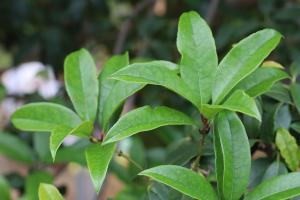Introduction
Bermuda grass is a popular turfgrass species that is commonly found in warm climates. It is a great option for lawns, athletic fields, and golf courses due to its tolerance of heavy foot traffic and drought conditions. Arizona is a great place to grow Bermuda grass due to its year-round warm weather. In this article, we will discuss when to plant Bermuda grass in Arizona.
Soil Preparation
Before planting Bermuda grass, it is important to prepare the soil properly. Bermuda grass prefers well-drained soil with a pH between 6.0 and 7.5. If your soil is too acidic, you can add lime to raise the pH. If the soil is too alkaline, you can add elemental sulfur to lower the pH. It is also important to remove any weeds or grasses that are currently growing in the area where you plan to plant the Bermuda grass.
Best Time to Plant Bermuda Grass in Arizona
In Arizona, the best time to plant Bermuda grass is in the late spring or early summer. This is typically from mid-April to early June. During this time, the soil has warmed up enough to promote fast growth, and the temperatures are still mild enough to prevent heat stress on the new grass. Planting at this time also allows the Bermuda grass to establish before the high temperatures of summer arrive.
Planting Methods
There are several methods for planting Bermuda grass in Arizona. One option is to lay sod, which is essentially rolls of pre-grown Bermuda grass that can be purchased and installed. Another option is to plant Bermuda grass seeds. This method requires a bit more time and effort, as you will need to prepare the soil, sow the seeds, and then keep the area well-watered until the seeds germinate and the grass becomes established.
Maintenance
Once the Bermuda grass is established, it is important to properly maintain it. Proper maintenance includes regular watering, fertilization, and mowing. It is recommended to water Bermuda grass deeply but infrequently to encourage deep root growth. Fertilization should be done regularly, but not too heavily, as too much fertilizer can cause the grass to grow too quickly and become weakened. Mowing should be done regularly, with the height of the grass kept between 1 and 2 inches for best results.
Conclusion
Bermuda grass is a great option for Arizona lawns, athletic fields, and golf courses due to its tolerance of heavy foot traffic and drought conditions. It is important to properly prepare the soil, plant at the right time, and maintain the grass to ensure its success. By following these guidelines, you can enjoy a beautiful and healthy Bermuda grass lawn in Arizona.

 how many times do yo...
how many times do yo... how many planted tre...
how many planted tre... how many pine trees ...
how many pine trees ... how many pecan trees...
how many pecan trees... how many plants comp...
how many plants comp... how many plants can ...
how many plants can ... how many plants and ...
how many plants and ... how many pepper plan...
how many pepper plan...





























